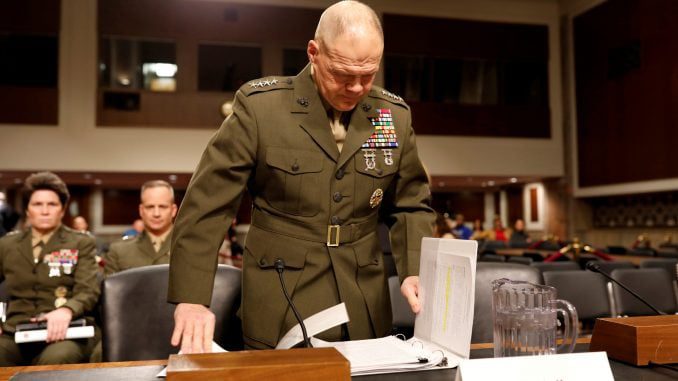
During the Senate Armed Services Committee meeting on March 14, Sen. Kirsten Gillibrand expressed outrage at the failure of the military to address sexual misconduct in the ranks. Referring to the group of active and retired military men who distributed compromising photos of female U.S. Marines through social media, she asked, “Who has been held accountable?”In this case, an invitation-only group calling itself Marines United obtained photographs of female Marines, some taken without their permission, and distributed them through a secret Facebook group. Gillibrand’s question was not rhetorical the military has repeatedly failed to control sexual misconduct. To reverse that trend, they need a different approach to the investigation and prosecution of sexual harassment.The Marines have a choice between two approaches to addressing the Marines United harassment. There’s a victim-centered approach the model from tort law in which the injured party asserts a claim or a risk-centered approach, which focuses on the larger-scale harms created. The choice of strategy will ultimately influence whether harassment in the military continues. Choosing the risk-centered approach will send a signal that the military is serious about combating the deliberate degradation of women in the armed forces.In a victim-centered approach, the investigators and prosecutors would require the women in the photos to go through hours of questioning about their dating history and use of social media. The women would need to look at the pictures and read the sometimes violent comments directed against them. Investigators would use the women’s reports as the basis for the prosecution.However, those who go through the reporting process will likely suffer a new round of harassment and injury service-members who have reported sexual harassment in the past have described a culture of victim-blaming and shifting the investigation on to the person reporting, rather than keeping it focused on the perpetrator. And 62 percent of those who reported harassment experienced retaliation during their time in the service, through behaviors such as physical attack, lack of promotion and social isolation. This approach is unnecessarily burdensome and it’s therefore not surprising that relatively few women have come forward in the Marines United case.The Marines should instead use a risk-centered strategy that focuses on the national security risk created by the breakdown in military command and increased risk of blackmail. The Marines United group has violated military codes, undermined the authority of their commanders, and jeopardized the combat readiness of their units. And the Facebook group has created an entire network of blackmail targets.Determining the extent of the national security risk will require investigators to identify the members of the Marines United group, which Marines were targeted by the photos, and where they fell in the chain of command. Using the Facebook data, investigators can discover who shared the photos, created the pages, and cheered it on by using a “like” button or making explicit comments.This strategy has an advantage over the victim-centered approach, in which investigators would only be able to ask Facebook for details in relation to those specific photos or that person. By framing the investigation as one of national security and military command, the burden moves away from the victim and on to the actions of the Marines United group.Investigators would not need to base their actions on the undetermined injuries of the victims. Instead, recognizing national security interests, investigators could use court orders and subpoenas to compel Facebook and group members to disclose personal identifiers without a single victim coming forward. The scope and task is similar to a racketeering investigation in which the investigator’s first job is to identify those involved in the illegal activity.Some will say that the sharing of explicit photos, taken or shared without consent does not justify national security concerns or threaten a breakdown of military command. After all, they would argue, this practice is no different from sharing Polaroids in Vietnam or viewing porn on the internet.But what happened here is different Marines shared photos of their fellow Marines and commanders. If a private physically attacks a major, he knows he is going to be court-martialed. If a private subjects his major to public humiliation, he should know that real consequences will follow.By using the risk-centered approach, the military will send a message about the seriousness of the threats and risks created by the photo-sharing group. Sanctions that might be commensurate with mere privacy violations are too weak for violations of national security and military command.M.E. Karns, a lawyer, is a senior lecturer in the Department of Social Statistics at Cornell University.



